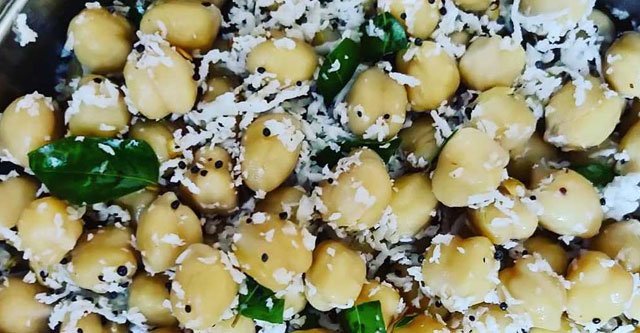Last Updated on September 4, 2020 by Dr Sharon Baisil MD
The white Chana is a good supplement for individuals who have diabetes. Not only that, but it is also one among the recommended food items to be added in the diabetic diet chart.
The Glycemic Index or GI is an important measure to determine foods based on their consumption efficiency by diabetic patients. It determines the effect one food item can have on a person’s blood sugars.
Foods that are said to fall under a Low Glycemic Index category is said to be the efficient ones to be added to a diabetic patient’s health and diet. These food items have a Glycemic Index ranging from 0 to 55.
Talking about the White Chana is said to be among the best essential foods for diabetics, but what is the Glycemic Index of this legume?
The Glycemic Index of White Chana is only 28. It is categorized under the foods that are low in the Glycemic Index. That means this legume is one of the healthiest ones to be added to your diet.
It would not cause any harmful spikes in one’s blood sugar levels. It will instead be helpful to induce this into consumption.
White Chana causes a slow-paced release of glucose in the body; this assists in a healthy derivation of energy, instead of causing any immediate and dangerous rises in blood sugar levels.
Many even advise that the addition of functional foods that do not have too much carbohydrate and prevent heightening the conditions of the diabetics can help reverse Diabetes.
The White Chana is said to be one among those healthy food items.
A 2007 research published in the “British Journal of Nutrition” stated that when tested the efficiency of White Chana on rats for the recording of its effects on the blood sugar levels, it was found that – White Chana might have the ability to lower the risks of diabetes. It was also observed that these are better in promoting insulin resistance.
The White Chana is also appreciated for its tremendous and versatile nutrient content qualities and taste. It can be used in various dishes and will still be healthy.
Let us dive into some of the more significant details of this item from the legume family and its good effects on one’s health.
More about the White Chana

White Chana, Kabuli Chana, Garbanzo beans, or popularly known as the Chickpea, is among the most versatile legumes used in the kitchen.
It has a lot of health benefits, and as we already discussed, it is also great for the people who have diabetes, as it has a neutral effect on the blood sugar levels and, thus, helps maintain a balance.
People with diabetes, pre-diabetics, health-conscious individuals, people trying to keep a watch on their weight, and everyone else can consume White Chana and benefit from it without worrying too much about any ill effects.
The White Chana is an excellent protein that can be very healthy and beneficial to the body. Apart from proteins, white Chana is also a good source of other helpful nutrients that include – Fiber, Zinc, Phosphorus, Iron, Potassium, Magnesium, Vitamin B-6, Thiamine, Folate, Riboflavin, etc.
The primary nutrients that help manage and balance blood sugar levels in the body are protein and fiber. These nutrients are great to be included in a diabetic-friendly diet, as they add proper nutrition to the body and do not hamper with the blood glucose levels.
When we talk about the white Chana being safe for diabetic patients’ consumption, how can we forget to mention the carb content in these legumes and their effects on the blood sugar levels?
Many doctors have verified and proved the advantages of White Chana being perfect for being included in the diet as a healthy supplement.
They recommend it as it is an excellent resource for protein to the body, provides the right amount of energy, and also helps in the reduction of cholesterol.
Right serving size of White Chana for diabetic patients:

The carbohydrate content in White Chana is around 27% of its total nutrient composition. A cup of White Chana contains around 45 grams of total carbohydrate.
Even in these 45 grams, only 7.9 grams of it is in sugars. 12.5 grams of this carbohydrate is from dietary fibers that assist in restricting the effect that white Chana can have on the blood sugar levels.
This dietary fiber does not increase or have a grave impact on the body’s glucose in the blood. Thus you can even subtract this amount of carbohydrate from a cup measure of White Chana.
Thus, we come at a precise point that states that one-cup serving of the white Chana has around 32.5 grams of carbohydrate. As per dietician’s and doctor’s recommendations, people with diabetes have an allowance of around 15 grams per serving.
Thus, the perfect serving of White Chana for a diabetic patient is often half a cup (around 50 grams). This should be a safe amount for consumption and healthy for the body due to the presence of a lot of other good nutrients. Having 50 grams of this legume daily can be a suitable replacement for any unhealthy snack as well.
You can include half a cup or 50 grams of White Chana in your diet in various forms. It can be boiled, mixed in a salad, made into a curry or taken as a side dish, as a snack, as Chana chaat, in sandwiches, in vegetable soups, crushed and mixed with other ingredients to make into a hummus dip, as roasted White Chana, etc.
Also, keep in mind that the way a food is cooked, taken raw, or processed in factories can have differences in how they influence one’s body.
It also depends on one’s metabolism strength and health, as these are essential factors that determine the way one’s blood sugar level is impacted.
Depending on your diabetic health and condition, it is often better to consult your doctor or medical team about the intake of certain foods. They can guide you better and on the lines of your health needs and preferences.
What other benefits does White Chana have, except for controlling blood sugar levels and preventing Diabetes?

Apart from just keeping a check of your blood sugar levels and preventing any spikes or falls in it, the White Chana is said to be beneficial in numerous other ways.
– A source of iron for the body and its immune system: Iron deficiency in the body is a widespread issue. More than men, women fall in this deficient trap, which can have weakening effects on one’s overall immunity.
The lack of this mineral in the body is responsible for many disorders ailments, including anemia.
Having a proper amount of White Chana can facilitate your body’s iron content as it serves to fulfill the deficit.
White Chana has the right amount of iron present in it and can also be great for the body hemoglobin.
– Beats Fatigue by providing energy: Due to an improper diet, hectic daily schedules, lack of proper rest, etc. one can experience exhaustion in the body.
A deficiency of essential nutrients in the body can add to this feeling of energy drain and fatigue.
White Chana is an excellent source of energy and can provide the body with many other vital nutrients.
White Chana is high in a variety of minerals, including Manganese, Magnesium, Thiamine, Phosphorus, etc.
Along with pumping up on the energy level in your body, it also has a good effect on the body’s immunity and overall health.
– Could be a helpful agent in promoting weight loss: Many of us are trying to keep a check on our body weight, and it is often a difficult task. Finding perfect low-calorie foods is hard, and they are not always sufficient in a lot of other nutrients.
The white Chana is an excellent option to include in the diet when trying to lose weight. It is healthy and low in calories, but it is also a powerhouse of many other nutrients and minerals.
It helps in keeping one full and reduces the risk of weight gain. It also provides the fiber that facilitates proper metabolism.
Removing unhealthy and junk food items from your diet and replacing them with half a cup of White Chana daily is a good option for pre-diabetics and diabetics, patients with obesity, health-conscious individuals, etc.
You can even snack on a handful of White Chana after an excellent workout to refill you on the energy.
Including this health-efficient White Chana in your diabetic diet chart with these easy dishes:
– One effortless way is to roast the White Chana with some spices and to have it as a snack. Make sure you avoid oils and also keep a check on the quantities that you consider.
– Chickpea flour is an excellent alternate for many high-starch flours available in the market. You can often replace your regular Wheat-flour or White-flour with the nutritionally efficient Chickpea flour. You can even opt for bakery brought items from chickpea flour, or make them at home.
– Making the very famous Mediterranean classic dip with Chickpeas is another excellent way to add them to your diet. Hummus is made from crushing chickpeas and sesame seeds, with some olive, lemon juice, and salt, etc. to form a creamy paste-like consistency.
This dip can be enjoyed with fresh and crunchy vegetables, a salad dressing, a spread on slices of bread, a side dish, etc. With diabetes, be sure not to include more than two spoons of the hummus serving as a dip.
– You can even make a Chickpea salad with boiled chickpea, favorite chopped veggies, spices, and dressing.
REFERENCES:
https://pubmed.ncbi.nlm.nih.gov/26242869/
https://pubmed.ncbi.nlm.nih.gov/30249012/
https://pubmed.ncbi.nlm.nih.gov/25998293/
https://pubmed.ncbi.nlm.nih.gov/31374573/
https://pubmed.ncbi.nlm.nih.gov/29562676/
https://pubmed.ncbi.nlm.nih.gov/18175744/
https://pubmed.ncbi.nlm.nih.gov/26224300/
https://pubmed.ncbi.nlm.nih.gov/11999539/
https://pubmed.ncbi.nlm.nih.gov/25524422/
https://pubmed.ncbi.nlm.nih.gov/32728757/
https://pubmed.ncbi.nlm.nih.gov/32526896/









